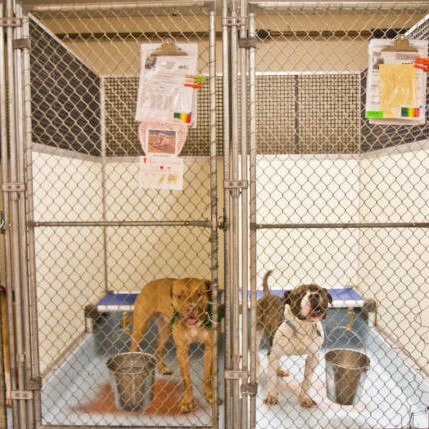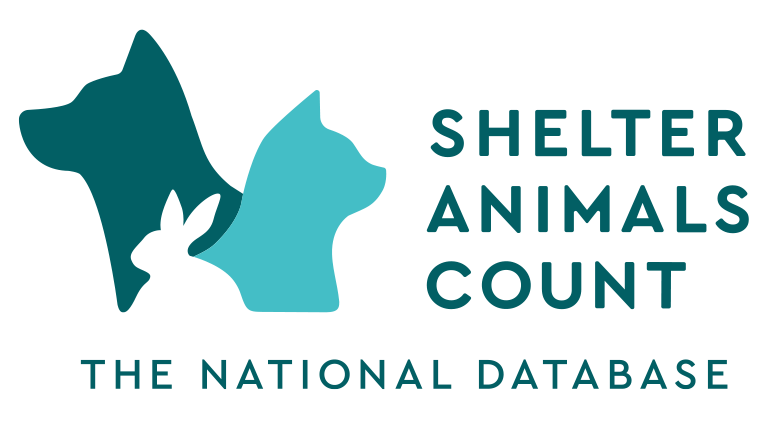Big Dog Behavior Data: Shelter Animals Count with Hill’s Pet Nutrition
December 13, 2024

The Providence Journal
Published: December 9, 2022
Animal shelters in RI cannot keep up with dog and cat surrenders.
Last week, the Providence Animal Rescue League took in three dogs from the same household, “incredibly sweet fellas” given up because their human family was being evicted from their home.
Like many of the pets surrendered to the rescue organization, Buddy, Bruiser and Scooby suffer from untreated medical conditions. In addressing a wider problem, the rescue league mentioned the dogs’ plight in trying to raise money for expanding the organization’s preventive-care clinics and pet-food pantry. Ensuring that more pets get their vaccination shots and have enough food, the organization said, “would help pets and their people stay together and thrive at every stage of life.”
These are tough times for pet owners, their furry pals and the medical professionals that care for them. Operators of local shelters and support organizations say pet-surrender requests are outpacing adoptions, while the demand at pet-food pantries and reduced-fee veterinary clinics have skyrocketed. Challenges that have hit humans hard in the last few years, including financial losses from the COVID-19 pandemic, inflation and access to affordable housing, have infected the health and welfare of dogs, cats and other pets.
“There’s definitely an increase in challenges for people to keep their pets,” says Rebecca Baylies, executive director of the Providence Animal Rescue League.
Bruiser leans in to get a little love from Beth Nassef, director of operations at the Providence Animal Rescue League. Bruiser and two other dogs from his household, Buddy and Scooby, have been surrendered to the shelter because their human family is being evicted from their home, one of many interrelated reasons animal shelters and veterinary-care services are strained beyond their limits as the COVID-19 pandemic fades nearly three years after it began.
It’s a widespread problem exacerbated by a shortage of veterinarians and support staff, many of whom feel tremendous stress in trying to meet the demand for care.
“This is a crisis,” said Liz Skrobisch, executive director of Animal Rescue Rhode Island in Wakefield. “We’re just a microcosm of what’s happening across the country.”
Across the country this year, 7.3% more animals are entering shelters than leaving, according to Shelter Animals Count, which keeps a national database. That increase is expected to fall off slightly by the end of the year, but it’s still the largest gap in the last four years, according to the organization.
Locally, shelters are feeling the pressure. Over two days last week, the Providence Animal Rescue League took in four cats and a rabbit, in addition to Buddy, Bruiser and Scooby. “There’s an unprecedented number of requests for surrender,” Baylies said. “We haven’t been able to keep up with the demand.”
The shelter at the Rhode Island Society for the Prevention of Cruelty to Animals is full, with 38 dogs and smaller animals in cages throughout the building, according to Wayne M. Kezirian, the agency’s president and general agent. As of Tuesday morning, the RISPCA had 41 surrender requests for dogs, three for cats and 43 for small animals, including a bearded dragon lizard dropped off Monday due to an eviction. The shelter can squeeze in the cats but not the dogs.
What about all those ‘COVID puppies’?
The RISPCA is seeing a lot of requests to surrender pets that were purchased during the pandemic, often dogs that are younger than the typical surrenders and haven’t been properly socialized, Kezirian says. The two primary reasons for pet surrenders at the RISPCA, he says, are “financial inability and, more recently, people returning to work and realizing that, due to lack of training and socialization, their COVID pets can’t tolerate being alone in the house while they are gone.” Fortunately, Kezirian says, RISPCA has “a lot of good volunteers” who are working with the surrendered pets to train and socialize them.
Pets are certainly popular in the United States, and many people got pets for companionship during the COVID-19 pandemic. More than half of households in the United States have pets, notes Brad Shear, chief executive officer of the Potter League for Animals. He says, “There are more pets than children” in the nation.
Caring for a pet comes at a cost, which like just about everything else, has increased with inflation, and at the same time people have faced job losses and other financial difficulties. A regular visit to a veterinarian can cost $400 to $500, Shear notes, while an emergency visit could cost thousands. Add the cost of food and other necessities, and “you’re probably in for a couple thousand (dollars) for a single pet,” Shear says.
Pet-food pantry and discounted veterinary services help relieve pressure
For some pet owners, the price of a vaccination or pet food competes with the electric bill, the heating bill and even their own food bill. Baylies says, “Prices have risen drastically for a can of wet cat or dog food.” Shear has heard pet owners say, “I’ve been sharing my food with my pet, because I can’t afford pet food.”
To bridge the gaps, animal rescue organizations help struggling pet owners with free pet food and discounted veterinary services. Baylies says, “We’re always trying to keep people and their pets together when it’s in best interest of both.” The demand at pantries and clinics has increased dramatically since the start of the pandemic. In 2019, the Providence Animal Rescue League gave out 10,000 meals for pets, but that number increased to 100,000 by 2021. Baylies says, “Many families found themselves without jobs suddenly and had no idea they would need this kind of service.”
“COVID struck and the demand simply exploded,” says Skrobisch of the Animal Rescue Rhode Island in South Kingstown. For many years the pantry helped “just a small group” through the JonnyCake Center for Hope and “a church or two,” Skrobisch says. Now, to help meet the need, the organization has expanded its pet-food program to deliver food to communities as far away as East Providence, Cranston, Warwick, Central Falls and Woonsocket.
Financial problems for pet owners and swamped veterinarian practices have also increased demand at reduced-cost veterinary clinics. In 2019, the Providence Animal Rescue League served 242 animals through 11 clinics, which provided low-cost vaccines, microchipping and nail trimming. This year, the organization has served 1,538 animals through 16 clinics. Almost 400 pets were treated at an October clinic in Central Falls. “It was a long day with really long lines,” Baylies says, but rewarding considering the gratitude of the pet owners.
Still, it hasn’t been enough.
The Providence Animal Rescue League cannot keep up with the request for dog and cat surrenders because “nearly every animal is arriving at our door with medical needs beyond the routine,” Baylies says. In 2019, the organization spent $23,000 on veterinarian bills beyond the typical in-house care – for services such as emergency care, complex surgeries or specialized diagnostics, according to Baylies. In 2021, the organization spent $74,000 in veterinarian bills for similar needs.
“Animals with more medical needs have a longer length of stay in our care, and thus slow down our ability to keep up with the surrender demand,” Baylies says. “It is a heartbreaking cycle that leads to longer wait times for surrender appointments and has overwhelmed many shelters and animal control agencies across the state.”
Buddy and his housemates, Bruiser and Scooby, are “incredibly sweet fellas who reportedly love to sleep in the sunshine and snack on tasty treats,” The Providence Animal Rescue League says.
Baylies says, “Local vets are reporting that they are overwhelmed with sick visits and pet emergency hospitals are reporting long wait times and are often at capacity for care when new emergencies arrive at their door.”
The toll on people and their pets is noticeable, says the RISPCA’s Kezirian. “We find the people we’re serving are more and more frustrated and on edge. People are feeling the stress. It’s not getting better.”
The RISPCA offers a pet-food pantry, veterinary clinics and takes pets that their owners have surrendered. It also boards pets under hardship conditions, such as hospitalization or a housing loss. People will sometimes reach out for help for their pets before themselves, Kezirian says. “I really think I need to have a social worker answering some of the calls. There’s a lot of people out there that need help.”
Veterinary clinics are feeling the overload, too
The stress has carried over to the people trying to provide help at the shelters and in the veterinary clinics. While pet owners may have trouble finding a veterinarian or getting a timely appointment, veterinarians are feeling the pressure.
“The shortage of veterinarians and support staff has hit us quite hard,” says Justine Johnson, a veterinarian and chief of staff at Ocean State Veterinary Specialists in East Greenwich.
“There’s no question the number of pets increased with COVID,” she says. “As a culture, we are putting more and more value in pets as a member of the family.”
The demand for service has been so strong that Ocean State, which provides emergency services, has had to turn away patients for the first time in its 22-year history, relying on a triage system to ensure veterinarians treat those in the greatest need.
“That’s heartbreaking. They feel terrible not being able to help every animal that comes here,” Johnson says. “We’ve got over 50 doctors here, but we can’t keep up.”
Scooby had to be given up by his owner after their home eviction.
The field of veterinary care is suffering a mental-health crisis, Johnson says, and she asks pet owners for understanding. “Everyone is working at 130%,” she said. “Everyone I know is trying their best to help as many animals as they can.”
Pets play a tremendous role in many people’s lives, and the decision to surrender a pet is usually heart-wrenching, Baylies and others say. For the three dogs surrendered to the Providence Animal Rescue League, the story was familiar.
“Their human family loved them very much but was being evicted from their home and they could no longer care for them logistically or financially,” the rescue league says in a Facebook post. “The dogs are incredibly sweet fellas who reportedly love to sleep in the sunshine and snack on tasty treats.”
The rescue league would like to find them new homes, but must first address their “various medical issues,” including possible ear infections, skin and vision problems.
And knowing there are more Buddys, Bruisers and Scoobys out there, the Providence Animal Rescue League plans to hold more vet clinics and expand its food pantry in 2023.
